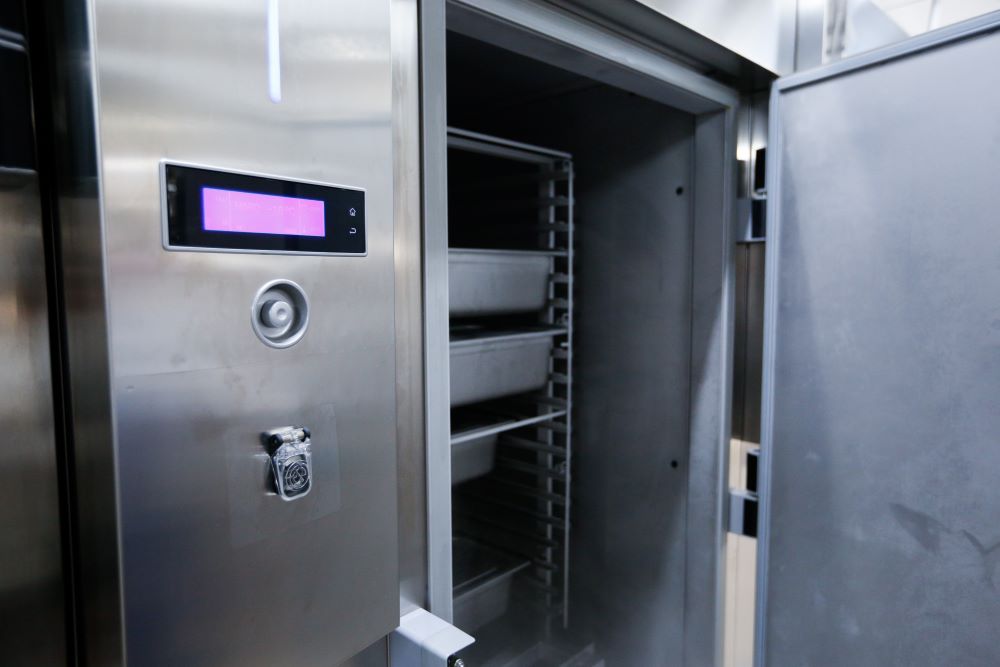Running a business that depends on commercial refrigeration means any disruption to your freezer can quickly become a significant problem. Whether you operate a café, restaurant, grocery store, or healthcare facility, consistent and reliable freezer performance is critical for protecting stock, maintaining safety standards, and ensuring customer satisfaction. When your freezer suddenly isn’t getting cold, it’s not just a technical issue — it’s a risk to your business operations.
Many common freezer problems are preventable with proactive care and professional servicing. In this blog, we’ll explore some of the most frequent causes of freezer failures and how investing in commercial refrigeration maintenance plans can help local businesses avoid costly downtime.

A malfunctioning thermostat is one of the most common culprits behind freezers that fail to stay cold. The thermostat regulates the internal temperature by signalling when the compressor should switch on or off. When it fails, the entire cooling cycle is disrupted.
Even minor thermostat issues can compromise product safety and quality in commercial environments where precise temperature control is essential.
Key problems that arise from faulty thermostats include:
Regular inspections as part of a commercial refrigeration maintenance plan ensure that thermostats are properly calibrated, reducing the likelihood of sudden failures that threaten stock integrity.
The condenser coil plays a vital role in releasing the heat removed from inside the freezer. In busy commercial kitchens or retail spaces, these coils are often exposed to dust, grease, and airborne debris, which gradually coat the surface and reduce the unit’s ability to function efficiently.
When condenser coils are obstructed, the refrigeration system struggles to dissipate heat, forcing it to work harder to maintain low temperatures.
Common indicators of blocked condenser coils include:
Preventive maintenance involves regular coil cleaning, allowing the freezer to operate optimally while extending the life of key components.
Refrigerant is the working fluid that absorbs heat and allows the freezer to maintain low temperatures. A refrigerant leak reduces this cooling capacity, making it nearly impossible for the system to maintain safe storage conditions.
Leaks can occur for various reasons, such as:
Signs of a refrigerant issue include:
The rubber gaskets surrounding freezer doors are crucial in maintaining a sealed environment. When these door seals degrade, warm air can infiltrate, introducing moisture that leads to frost buildup and unstable internal temperatures.
Damaged seals can result from:
Warning signs of deteriorating door seals include:
A commercial freezer’s performance depends on a network of electrical components, including control boards, sensors, relays, and wiring. Any malfunction in these components can lead to unexpected shutdowns, fluctuating temperatures, or permanent equipment failure.
Typical electrical issues that affect freezers include:
Regular servicing as part of a preventative maintenance plan helps identify and resolve minor electrical problems before they cause major failures, minimising costly downtime.
Consistent airflow inside the freezer is essential for maintaining stable, even temperatures throughout the storage compartment. When airflow is blocked, some areas may remain cold while others experience dangerous temperature increases.
Problems caused by restricted airflow include:
Airflow restrictions are often caused by:
The evaporator coil absorbs heat from inside the freezer. If it becomes iced over due to excessive humidity or faulty defrost components, it reduces the freezer’s ability to maintain cold temperatures.
Common causes of evaporator coil icing include:
Preventive maintenance includes thorough inspections of defrost controls, coil cleaning, and drainage checks, preventing major service disruptions.
Many businesses reactively call for freezer repairs only after problems have disrupted operations. By this stage, businesses often face:
A commercial refrigeration maintenance plan offers businesses proactive, scheduled care that keeps equipment running efficiently year-round.
Benefits of ongoing maintenance plans include:
At Thermal Air Conditioning Solutions, we know how critical your refrigeration systems are to the smooth running of your business. Our comprehensive commercial refrigeration maintenance plans in Tweed Heads are designed to prevent freezer breakdowns before they occur, helping you avoid costly downtime and safeguarding your business operations.
Our technicians conduct detailed system inspections, cleaning, testing, and preventative repairs so you can focus on running your business confidently. Contact us via our contact page to schedule a consultation or arrange service.
Contact us today on (07) 5524 7509 (Tweed Heads) or (02) 6638 0708 (Byron Bay) to get your project up and running.
Contractor’s License: 283 506C
QBCC License: 1310157
ARCTICK License: AU38131
| Monday | 8:30am – 4:30pm |
| Tuesday | 8:30am – 4:30pm |
| Wednesday | 8:30am – 4:30pm |
| Thursday | 8:30am – 4:30pm |
| Friday | 8:30am – 4:30pm |
| Saturday | Closed |
| Sunday | Closed |